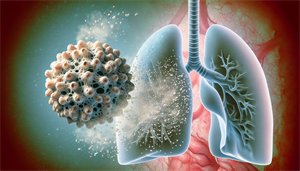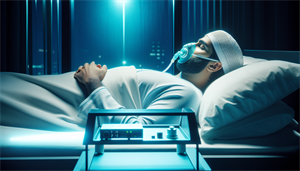Taking melatonin may prompt concerns about its effect on sleep disorders, notably sleep apnea. But, can melatonin cause sleep apnea?
This article sifts through evidence to address your concerns, aiming to reveal what melatonin means for those at risk of or currently facing sleep apnea.
Key Takeaways
-
Melatonin, known as the ‘sleep hormone’, is not a strong sedative but instead signals the body to prepare for sleep. It can help improve sleep quality if taken 1-2 hours before bedtime, but the right dosage varies based on individual factors.
-
While melatonin supplements can aid with sleep disorders, they may exacerbate sleep apnea by further relaxing throat muscles, leading to increased airway blockage. Consequences can be heightened when taken with sleep apnea medications, hence consulting with a healthcare provider is crucial.
-
Alternative non-pharmacological approaches for sleep apnea management include lifestyle changes, using a humidifier, herbal teas with honey, and sleeping on an angled pillow. Medical treatments such as CPAP therapy not only alleviate sleep apnea symptoms but can also help restore natural melatonin production.
Understanding Melatonin and Its Role in Sleep
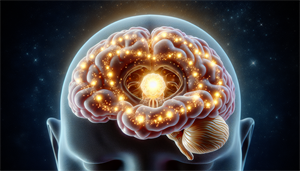
Melatonin, often dubbed the ‘sleep hormone’, is synthesized by the pineal gland and holds the key to our sleep-wake cycles. However, it’s not a potent sedative as most people may think. Instead, it signals the body to prepare for sleep and, in the right amounts, can enhance the quality of sleep, especially for those grappling with sleep disorders.
The Pineal Gland and Melatonin Production
Nestled deep within the brain, the pineal gland is the powerhouse of melatonin production, thus playing a pivotal role in sleep medicine. The process of melatonin biosynthesis is intricate, with multiple enzymes involved, and the end product - melatonin - regulates our sleep-wake cycles, including REM sleep.
How Melatonin Supplements Work
Melatonin supplements are a popular over-the-counter sleep aid, often referred to as otc sleep aids. These supplements can be beneficial, particularly for individuals navigating through short-term sleep disorders or those dealing with preoperative anxiety. Once ingested, melatonin undergoes metabolism in the liver, and its effects can be felt within 20 minutes, thus helping alleviate sleep disorder symptoms.
However, for optimal results, melatonin should be ingested 1 to 2 hours before you plan to fall asleep for the night.
The Relationship Between Melatonin and Sleep Apnea
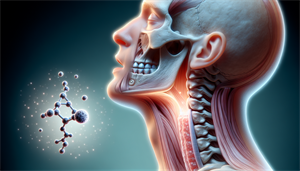
Melatonin, despite its sleep-promoting benefits, can potentially make sleep apnea worse. Its muscle-relaxing properties can intensify the likelihood of airway collapse, particularly in untreated sleep apnea cases. This is why individuals with sleep apnea must practice caution when considering the use of sleep aids like melatonin, as these can exacerbate the core obstruction of the condition and lead to an abnormal melatonin secretion pattern.
Melatonin's Impact on Throat Muscles
Melatonin’s muscle-relaxing properties have a downside. They can worsen sleep apnea by further relaxing the throat muscles, already relaxed in sleep apnea patients, thereby obstructing the airway and deteriorating the condition.
Interactions With Sleep Apnea Medications
Melatonin’s interaction with medications prescribed for sleep apnea can potentially exacerbate the condition. The muscle relaxation induced by sleep apnea medications can be intensified by melatonin, which also induces muscle relaxation. This can amplify the effect and potentially worsen obstructive sleep apnea symptoms.
Therefore, before starting melatonin, particularly if you’re already taking sleep apnea medications, a discussion with a healthcare provider is recommended.
Safety Concerns and Precautions When Using Melatonin
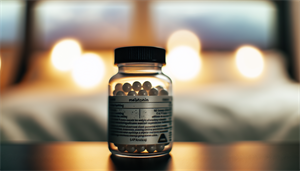
Regarding melatonin, adhering to the recommended dosage, typically between 1 and 10 milligrams, is a fundamental safety measure. Overdosing can result in uncomfortable side effects like headaches and nausea, and the risk of adverse effects may increase with higher doses.
Sleep apnea patients should be aware of the potential interaction between melatonin and their medications. Therefore, consulting a healthcare professional regarding treatment, dosage, and brand selection is advisable.
Appropriate Dosage and Duration
The appropriate dosage of melatonin can vary based on factors such as age, weight, sleep-related concerns, and individual reaction. As a general guideline, it’s recommended to take between 1 and 5 milligrams for sleep. It’s advisable to start with a low dose and seek guidance from a healthcare provider before increasing the dosage, as elevated doses can lead to cardiovascular issues.
Consulting a Healthcare Professional
Before you embark on a regimen with melatonin, consultation with a healthcare professional is necessary. They can help ascertain the suitable timing and dosage, and weigh its advantages and potential drawbacks, especially if you have sleep apnea or are taking medications for it. If you encounter adverse reactions to melatonin supplements, it’s advisable to discontinue use and seek medical advice.
If sleep difficulties persist, including daytime sleepiness, in spite of melatonin supplementation, it is recommended to seek advice from a medical professional.
Alternative Sleep Aids and Strategies for Sleep Apnea Patients
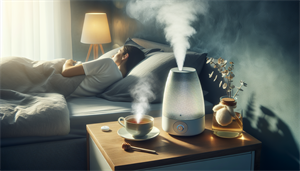
Although melatonin can provide some relief, examining alternative sleep aids and strategies can be beneficial for sleep apnea patients. These include lifestyle changes such as weight loss, increased physical activity, cessation of alcohol and tobacco use, and avoidance of certain medications, which may provide benefits for individuals with sleep apnea.
Non-Pharmacological Approaches
Non-pharmacological approaches, such as using a humidifier, adding honey to herbal tea, and sleeping on an angled pillow, can also help to manage sleep apnea symptoms.
Here are some non-pharmacological approaches to manage sleep apnea symptoms:
-
Using a humidifier to increase the moisture in the air, improving the comfort of breathing for sleep apnea patients.
-
Adding honey to herbal tea, as it has anti-inflammatory properties that can decrease throat swelling and reduce snoring.
-
Sleeping on an angled pillow to keep the airways open and reduce the risk of obstruction during sleep.
Lastly, using an angled pillow can help maintain spinal alignment and clear airways, improving sleep quality and ensuring a good night’s sleep.
Sleep Apnea Treatment Options
On the medical front, various devices and treatments can be utilized for sleep apnea. These include:
-
CPAP machines
-
Mouth appliances
-
Specially designed pillows
-
Positional therapy devices
-
Oral appliance therapy
-
Upper airway stimulation therapy
-
Sleep surgery
Continuous Positive Airway Pressure (CPAP) therapy, which employs a machine to supply continuous pressurized air, helps maintain open airways during sleep, thus reducing apnea episodes.
The Effects of CPAP Therapy on Melatonin Levels

CPAP therapy doesn’t just alleviate sleep apnea symptoms but also plays a significant role in enhancing melatonin levels. Research indicates that CPAP therapy enhances the natural production of melatonin and reinstates the body’s physiological melatonin production rhythm after three months of treatment.
Restoring Natural Melatonin Production
CPAP therapy can balance melatonin secretion in sleep apnea patients, consequently enhancing sleep quality and restoring the circadian rhythm. This is corroborated by a study conducted by Zirlik et al., which suggested that following a brief period of CPAP treatment, OSA patients experienced a delayed peak time of melatonin secretion, occurring around 6:00 AM.
Adjusting CPAP Settings When Using Melatonin
When combining melatonin with CPAP therapy, the muscle-relaxing effects of the former may necessitate adjustments to the pressure settings. Individuals who consume melatonin may need to increase the pressure setting of their CPAP machine to counteract the muscle-relaxing impact of the supplement on the throat. However, any required modifications to CPAP settings should be determined by a physician based on a CPAP titration study and AHI.
Summary
In conclusion, sleep apnea and melatonin share a complex relationship. While melatonin assists in the regulation of sleep-wake cycles, its muscle-relaxing properties can potentially worsen sleep apnea. Therefore, it’s crucial to use it under the guidance of a healthcare professional, especially for sleep apnea patients. CPAP therapy can help manage sleep apnea and also enhance melatonin levels. However, alternative sleep aids and strategies, both pharmacological and non-pharmacological, should also be considered.
Frequently Asked Questions
Does melatonin affect sleep apnea?
Yes, melatonin can worsen sleep apnea by relaxing upper airway muscles, leading to further obstruction during sleep.
What medications cause sleep apnea?
Certain medications such as antihistamines, benzodiazepines, barbiturates, and opiates can increase the risk of developing or worsening sleep apnea by impacting your natural sleeping cycle and breathing.
Can melatonin cause breathing problems?
Yes, melatonin can cause breathing problems and respiratory distress, leading to the need for acute level care. It may also result in sleepiness and slowed breathing when taken with sedative medications.
Why am I suddenly having sleep apnea?
It's important to consult a healthcare professional to identify any underlying medical conditions, such as heart or kidney failure, stroke, or other factors that could be causing your sudden sleep apnea. Seek medical attention to address the root cause.
Can I take melatonin if I have sleep apnea?
It's crucial to consult a healthcare professional before taking melatonin if you have sleep apnea, due to potential interactions with sleep apnea medications and the muscle-relaxing properties of melatonin. Always seek medical advice first.
